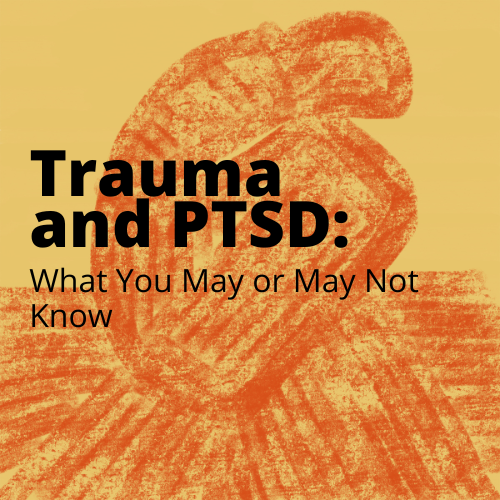
Trauma and PTSD: What You May or May Not Know
What is Trauma and PTSD (Post-Traumatic Stress Disorder)?
Trauma and PTSD (Post-Traumatic Stress Disorder) can come in many shapes and forms. No matter the form or type, Post-Traumatic Stress Disorder (PTSD) is very real. There are many different scenarios that can trigger PTSD in an individual. Some possible scenarios are veterans returning from war, serious accidents (like a car accident), sexual assault, cases of domestic or childhood abuse, or serious health problems like a cancer diagnosis. If you know someone who has gone through difficult experiences like these, it’s important to offer your support. Just because an individual goes through these experiences, doesn’t mean that they will develop PTSD. Each individual is different and will cope in different ways and trauma response can happen years later by surprise.
How to Support People with PTSD
If you or someone you know someone is coping with PTSD, try to understand the nature of the cause so you can help in situations that might serve as triggers to an individual’s past. One of the most important things that you can provide for someone who has PTSD is social support and being present to listen if they want to talk. This includes doing activities that you would normally do with that person and being patient. Let them come to you when they want to talk about their experiences and how they feel.
Understanding Triggers for Trauma and PTSD
People with PTSD often have internal and external triggers that can cause their day to day life difficult. Examples of external triggers are things like smells or sounds (a person stomping their feet while walking fast), certain kinds of weather, dates/times, confined situations or anything associated with the traumatic event. Internal triggers mostly have to do with physical discomforts, bodily sensations (like reminders through pain or injuries or the way they are touched) and emotional responses to certain situations can all be triggers. When you understand and learn a person’s triggers, you can help them
manage them and their reactions.
How to find a the right treatment center for you
Lifeline Connections commits to long-term wellness for our patients. For example, we offer an integrated, holistic approach that includes substance use disorder treatment, therapy and case management. For example, our doctors specialize in the treatment of co-occurring mental health and substance use disorders, working to solve ones that have a compounding effect. Above all contact us and reclaim your life.
Contact a doctor for a referral or find a therapist. Additionally, they can work to design a custom plan for wellness. Further, secure treatment is over the phone or computer with telehealth, providing coping skills for grief, loss, depression and anxiety. Moreover, they will work with you one-on-one to get you feeling better.
